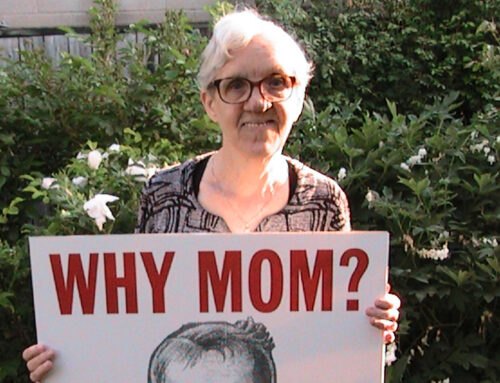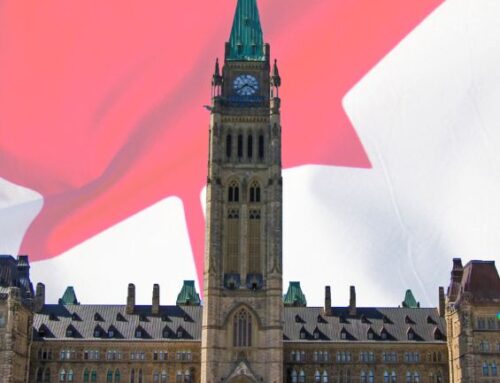It is generally assumed in Canada that because Northern Ireland is part of the United Kingdom, and is represented by Members of Parliament in London, it is covered by the British Abortion Act of 1967. Not so. The Abortion Act quite specifically excluded Northern Ireland, and abortion is illegal there.
This political-legal situation reflects the thinking and the moral principles of the people of Northern Ireland. There is one issue on which all religions are in agreement – the sacredness of life from the moment of conception, and the need to protect that life. As one wag asked: “What do Ian Paisley and Pope John Paul II have in common?” The answer is, “They are both totally pro-life.” One of the finest pro-life speeches ever made in Westminster in the House of Commons or elsewhere was given by Ian Paisley.
Reverence for Life
Mrs. Betty Gibson, the Chairman of the Society for the Protection of Unborn Children (SPUC) of Northern Ireland, said recently: “For all our problems, the vast majority of people in Northern Ireland have a great reverence for life, for the rights of the child who needs protection before and after birth.” This ‘reverence for life’ was exemplified in 1984, when an attempt was made by pro-abortionists to extend the Abortion Act to Northern Ireland. The motion was defeated by a vote of twenty to one, in the Northern Ireland Assembly.
Mrs. Gibson is quoted as saying: “We live with a constant sense of shame for the acts of violence committed here and which are always given the full glare of publicity throughout the world.”
Types of violence
In September, 1989, it was reported that in the last 20 years there had been 3000 deaths caused by “sectarian troubles” in Northern Ireland. A number of the deaths occurred far from Ireland; e.g., in Germany and in Britain, and in the majority of cases were caused by people with little or no connection with Northern Ireland Whatever the cause, every single death is a tragedy for the victim’s family, friends and society at large. But what is not well known is the fact that, even including the victims of terrorism, Northern Ireland has the lowest rate of crimes of violence in Britain, and one of the lowest rates of child abuse in the world. The ultimate child abuse – abortion – is completely absent.
Quite rightly, people recoil in horror at every shooting or bomb attack in Belfast, London, or West Germany – an average of 150 deaths a year. Strangely enough, people (often the same people) have little or no reaction to the far greater tragedy of violent deaths by abortion; 400 pre-born children killed every single day in the United States; one child killed every three minutes in Canada; a reported three millions babies killed in the last 20 years in Britain. Of course, these acts of violence and death do not occur in the streets and before spectators; there are no T.V. cameras showing the victims or interviews with the families. In Canada most babies were killed in the hospitals, built and supported by public money. They are killed not by outlawed terrorists, but by “respected” members of the medical profession.
Other more ethical members of that profession echo the words of Betty Gibson: “We live with a constant sense of shame for the acts of violence committed here.”
Equal Implementation?
It will naturally be no surprise to learn that the members of Northern Ireland Abortion Law Reform Association (NIALRA) are incensed that abortion remains illegal in Northern Ireland, and are working to get “equal implementation of the Abortion Act” throughout the United Kingdom. They have had no success in Northern Ireland either with the general public or the local political parties, or the unions. There remain the three main political parties as targets.
The Labour Party, like the NDP in Canada, is officially pro-abortion. However, there is a conscience provision for members and MPs, and a number of Labour MPs (but no women MPs) are strongly pro-life. Nevertheless the official policy of the Labour Party is strongly pro-abortion, and a Labour Government would be a threat to the unborn child.
The Social Liberal Democrats
The second party is the SLD (the Social Liberal Democrats), which began as a “middle of the road party” a few years ago. Its Policy Committee has recently issued a document, which supports implementation of the Abortion Act in Northern Ireland, whether or not the people want it.
The Chairman of the Policy Committee, Mr. Paddy Ashdown, shows clearly how “democracy” is not part of the SLD. To quote Betty Gibson again: “Mr. Ashdown promises us that advertisements for posts of gynecologists and – where necessary – anesthetists will include the requirement to carry out abortions. This means that practicing Christians (who quite definitely form the majority in Northern Ireland) could be banned from the practice of obstetrics and gynecology.”
The SPUC Offensive
To counter these attacks, both against the preborn child and the pro-life physicians who form a very large majority of the doctors, the Northern Ireland branch of SPUC is itself going on the offensive. They are going to churches of all denominations, establishing more branches, and organizing the extension of the work under a new Executive Committee which was formed in the spring of 1989.
What of the third party? The Conservatives are at present in power, and they have promised that so long as the climate concerning abortion remains the same, then abortion will remain illegal in Northern Ireland.
It is important to note that with the exception of Margaret Thatcher, and one fence sitter, all the Conservative women MPs are strongly, and vocally, pro-life.
SPUC, however, is making an effort to ensure that people understand that a change in the law could be made almost overnight, and with very little debate, by Orders in Council in Westminster. Apparently the law governing homosexuality in Northern Ireland was changed in this way even though most MPs opposed it. The same could happen to the abortion law, especially if the party in power believes in abortion on demand.
Nevertheless it is good to know that at least one area of the British Commonwealth of nations – however small, and however torn by strife – still stands firm in its protection of its tiniest and most vulnerable human beings.




